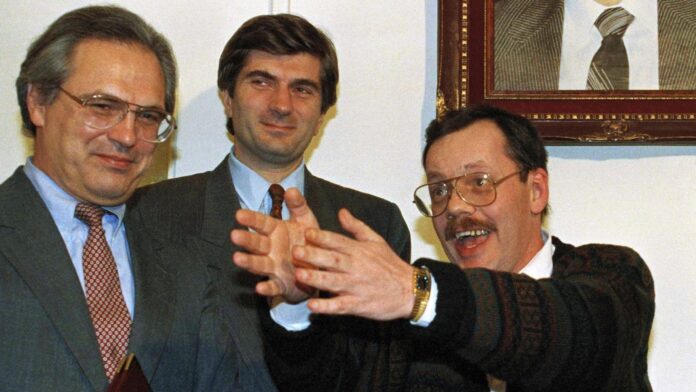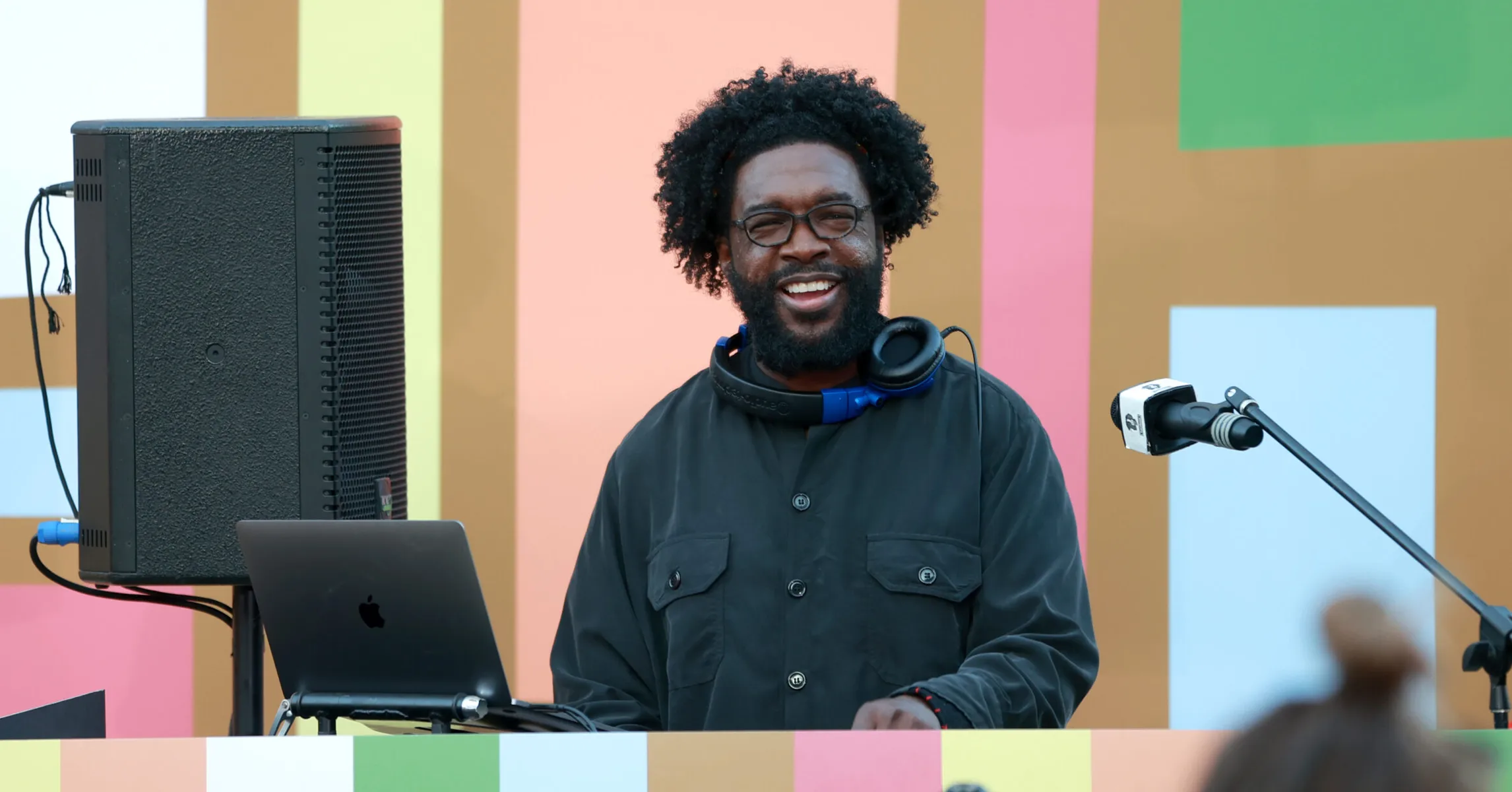Former UN diplomat Giandomenico Picco, whose negotiating skills helped resolve some of the thorniest crises of the 1980s and 1990s, including the Iran-Iraq war and the kidnappings of Westerners by Hezbollah in Lebanon, has died.
Picco died peacefully on Sunday after a long illness, his son Giacomo Picco said. He was 75.
Picco worked at the United Nations from 1973 to 1992. Peru’s Javier Pérez de Cuéllar, the world body’s fifth secretary general, appointed him to his executive post in 1982, eventually becoming deputy secretary general for political affairs.
Picco represented Pérez de Cuéllar in negotiations between New Zealand and France after the Greenpeace flagship Rainbow Warrior was sunk by French secret agents in 1985. At the time of the sinking, the ship was protesting French nuclear testing in the Pacific Ocean.
The following year, he became the top UN official in charge of negotiating a ceasefire in the war between Sunni-majority Iraq and Shia-majority Iran. More than 1 million people have been killed in the conflict that began when Iraqi dictator Saddam Hussein invaded his neighbor in 1980 and involved trench warfare, waves of attacks by Iranians and chemical weapons attacks by Iraq.
Picco also played a role in Afghanistan, helping to facilitate the withdrawal of Soviet troops in 1989 following Moscow’s 1979 invasion of that country.
Picco’s understanding of and relationships with Iran allowed him to negotiate the release of hostages kidnapped by groups linked to the Islamic Republic, including Terry Anderson, the Beirut bureau chief of The Associated Press, who was held for the longest time — from 1985 until 1991.
The mission was not without risk. In 1987, Anglican Church envoy Terry Waite disappeared from Beirut while trying to secure the release of the hostages and was himself held captive – also until 1991.
As Pérez de Cuéllar’s special envoy, Picco met that risk with personal courage and an understanding of diplomacy and the Middle East.
“When asked about the difference in my approach to securing the release of the hostages and that of Terry Waite, I replied: ‘He went to Beirut from the West and I went to Beirut from the East.’ At that time, the East began in Tehran,” Picco wrote in his 1999 biography: “Man without a gun: one diplomat’s secret struggle to free the hostages, fight terrorism and end a war.”
In a 2013 BBC interview, Picco described how at one point during the negotiations he traveled to Beirut, where an Iranian diplomat told him he would meet the kidnappers that evening.
The car screeched to a stop, he said, and a bag was placed on his head.
“Then I was thrown in the trunk of the car, something I don’t recommend to anyone,” recalls the 6-foot-2 Picco, who is known for dressing elegantly.
“Of course I knew I could be taken,” he said. “At that moment I had no choice. I had invested quite a bit of time in it and was convinced that what I was doing was right.”
Picco eventually negotiated a deal whereby the militias would release ten Western hostages, including Anderson, over several months. In return, Israeli-backed forces in southern Lebanon freed dozens of Arab prisoners.
Picco was born in Udine, in northeastern Italy, close to both Austria and the former Yugoslavia. According to friends and family, it was a location that influenced his ability to identify the needs of different groups and solve difficult problems.
“He was dealing with the hostage takers, the kidnappers, he was able to draw on this background,” said longtime friend John Connorton, a lawyer with experience in international relations. “Gianni Picco could identify with all kinds of people.”
Picco holds degrees in political science from the University of Padua and the University of California, Santa Barbara, along with the universities of Prague and Amsterdam.
Most importantly, his son said, he had deep empathy and curiosity.
“He was just a curious individual. No matter who you were, he could always learn something from someone,” says Giacomo Picco, who works in the financial sector in New York.
After joining the world organization, the eldest Picco became a political affairs officer of the UN peacekeeping force in Cyprus. Pérez de Cuéllar brought him to the UN headquarters in New York in 1981.
“Unlike government diplomacy, we are not trying to score a political point in favor of one or the other,” Picco said in a 1991 interview about the role of the UN. “We would like to create a situation where everyone wins in the end. And if indeed everyone wins, then we have all won.”
In an interview earlier this year, Anderson said Picco was selected for the hostage negotiations because “I guess the Secretary General thought if he could talk to the Afghans and the Iranians and the Russians and the Iraqis, he could talk to anyone, and he did.”
“He broke the deadlock, that’s what he did, and he did it at great risk,” Anderson added. “He was one of the most brilliant men I ever knew.”
In his book, Picco describes how a long relationship with Pérez de Cuéllar took him to Afghanistan when his mentor was given the “thankless Afghan assignment” after the Soviet invasion of December 26, 1979. De Cuéllar helped run the UN Office for Special Political Affairs and asked Picco to develop a road map for peace in the country.
The experience taught him about the role of the diplomat, Picco wrote.
“Our task, then, was to fill the void and nurture coalition politics in a way that would end the bloodshed,” he wrote. “It’s fine to emphasize the Secretary General’s role as a good officer, but then it’s up to each of his representatives to stretch the rubber band as far as he can without breaking it. This is critical to understanding what we did in Afghanistan.”
On December 12, 1991, President George Bush presented Picco with the Presidential Award for Exceptional Service.
“His skillful diplomacy with governments, officials and hostage representatives in the Middle East has resulted in the freedom of many individuals held outside of due process of law in the region, including six Americans,” said Major John Wissler, addressing Picco’s quote read. “His personal courage in the face of danger and his dedication to the mission represent the finest tradition of international civil service.”
In 1994, Picco left the UN to become CEO of the international consultancy firm GDP Associates.
A regular speaker at conferences and universities, and author of numerous publications on foreign affairs, Picco has received honorary degrees and awards from at least five governments.
Working for an international organization without the money or military might of major countries, Picco said he had to be armed with his own commitment, neutrality and commitment to winning the freedom of innocents.
“I really enjoyed implementing my own ideas. I don’t think it was fair to think about something and then ask someone else to do it. It’s not very courageous,” Picco said in a 2017 lecture in New York.



